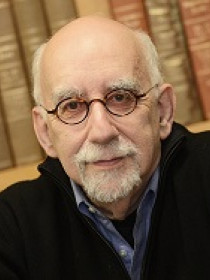
Ira Katznelson
Ruggles Professor of Political Science and History, Columbia University
President, Social Science Research Council
Chapter Member: New York City SSN
Areas of Expertise:
Connect with Ira
About Ira
Much of Katznelson’s recent work centers on intersections of inequality and lawmaking in the United States, including two recent books that trace the impact of the last phase of the Jim Crow South on the making of modern America – both in areas that directly concern race and those, including labor, social welfare, and national security, that do not but are entwined in different ways with matters of racial disparity.
Contributions
The New Deal and the Origins of Our Time
Key Findings Brief,
In the News
Quoted by Malik Simba in "If Only Hate Could be Removed with the Confederate Statues," The Fresno Bee, August 21, 2017.
Interviewed in "The New Deal and the Origins of Our Time," WNYC’s The Leonard Lopate Show, March 11, 2013.
Opinion: "Where Democracy Meets Fear," Ira Katznelson, Chronicle of Higher Education, March 4, 2013.
Publications
"Fear Itself: The New Deal and the Origins of Our Time" (Liveright//W.W. Norton, 2013).
Asserts that, during the 1930s and 1940s, American democracy was rescued yet distorted by a unified band of southern lawmakers who safeguarded racial segregation as they built a new national state to manage capitalism and assert global power.
"Was the South Pivotal? Situated Partisanship and Policy Coalitions during the New Deal and Fair Deal" (with ). Journal of Politics 74, no. 2 (April 2012): 604-620.
Shows how the 17-state Jim Crow South composed a structurally pivotal bloc during the New Deal and Fair Deal due to its size and cohesion and the need for southern votes to constitute majority coalitions.
Religion and Democracy in the United States: Danger or Opportunity? (edited with ) (Russell Sage Foundation/Princeton University Press, 2010).
Explores the effects of religion on democracy and contemporary partisan politics. Topics include how religious diversity affects American democracy, how religion is implicated in America's partisan battles, and how religion affects ideas about race, ethnicity, and gender.
"When Affirmative Action Was White: An Untold History of Racial Inequality in Twentieth-Century America" (W.W. Norton, 2005).
Demonstrates that all the key programs passed during the New Deal and Fair Deal era of the 1930s and 1940s were created in a deeply discriminatory manner. Through mechanisms designed by Southern Democrats that specifically excluded maids and farm workers, the gap between blacks and whites actually widened despite postwar prosperity.